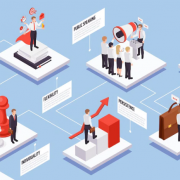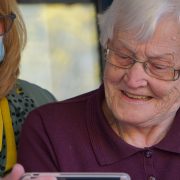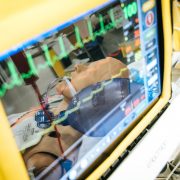Are Psychoactive Drugs a blessing or a curse? As Health workers, we are sometimes discouraged from expressing our opinions on most things medical because in most cases lives have been saved by those procedures, drugs etc, however, we have to discuss this paradox. Are psychoactive drugs a blessing or an ill to our society? The African country of the Democratic Republic of Congo (DRC) is endowered with rich minerals from Diamond to Gold to Chrome. However many scholars, investigators, and politicians just to name a few have agreed on one thing. Even though DRC is rich, the country is beleaguered by the plenty paradox or the resource curse. DRC is and has for years been facing political instability and most scholars have pinpointed the plenty plus resources( a very good thing) as the biggest reason for the political instability (a very bad thing). How can such a good thing lead to such a bad result is the paradox that has confused so many people who follow events in DRC. However, it can also point to one thing, in some cases, even the noblest ideas, even the purest of intentions can result in a very bad situation out of many people’s control. Could this be the case with Psychoactive Drugs?
Well, A Psychoactive Drug according to the National Cancer Institute Of America is:
A drug or other substance that affects how the brain works and causes changes in mood, awareness, thoughts, feelings, or behavior. Examples of psychoactive substances include alcohol, caffeine, nicotine, marijuana, and certain pain medicines. Many illegal drugs, such as heroin, LSD, cocaine, and amphetamines are also psychoactive substances. Also called psychotropic substance.
Given the increase in mental health matters globally, even in the UK, psychoactive drugs like Benzodiazepines which are usually prescribed for mental health conditions which include but are not limited to seizures, anxiety, insomnia, etc have helped many patients and saved many families from heartache and prolonged pain. Many psychoactive drugs have also helped people go through the infamous novel coronavirus pandemic that brought the world to a standstill. Without such modern medicines, there would have been a second epidemic if not another pandemic of people not coping with the measures put in place to fight the novel coronavirus. Mind.Org says 8% of the British population is suffering from mixed anxiety and depression, this means millions of people in the UK only need Psychoactive Drugs. Alcohol for instance is also used for recreational purposes and there are many people who are surviving and making a living because of alcohol, bearing in mind the global alcoholic drinks industry is worth a staggering US$1.49 trillion.
On another note, our societies are seeing an increase in drug abuse. While illicit drug abuse is on the rise, (1 in 11 adults in the UK takes or has taken illicit drugs) it’s also true that even some drugs like pain medication and drugs used to manage or cure mental health conditions are being abused. On The 11th of July, each year, the World Commemorates World Benzodiazepine Awareness Day to try and raise awareness over the dangers of the prolonged use of Benzodiazepine. Some people are chronically dependent on pain medication which is also a form of addiction. We will never have enough time to talk about alcohol addiction on this blog because the cases are plenty. Can we then say that these Psychoactive Drugs are our society’s curse given the likelihood of our people becoming addicts and abusing these drugs once they have taken them for one reason or another? No, as alluded to above, these drugs have done more harm than good. They have saved lives, prolonged lives and in some cases slowed down the progression of some diseases. This is a win mostly for some families who are still enjoying brunch together on Sundays. The fact that some families were robbed of their young ones or their family members due to drugs is sad but such incidences could have been avoided if society had taken the time to fight some of the problems they are facing because of those drugs
Just like in DRC, the minerals are not a problem. It is the powerful politicians who are abusing their custodial rights to govern the land which are causing political instability leading to the plenty paradox we spoke about. Psychoactive Drugs are by far a blessing to society as they offer relief to patients in dire need and in some cases deliver that occasional recreational flair we all need to keep a balanced life. We should however fight as societies to keep members of our societies from abusing them and bringing social ills and crimes into our neighbourhoods. Awareness Campaigns and Rehabilitation Centers should be every society’s priority to ensure that drug abuse of any sort is dealt with and or managed and individuals rehabilitated. Pressure groups, churches, and civil society organisation should intensify their daily message against drug abuse because one person lost to drug abuse of any sort is one too many if we have something to do about it.
Health workers should lead from the front in raising awareness over the abuse of legal and illegal psychoactive drugs because they know first-hand how people are unnecessarily losing their lives to drug misuse.
What do you think, are psychoactive drugs a blessing or a curse? While at it check out our other blogs










